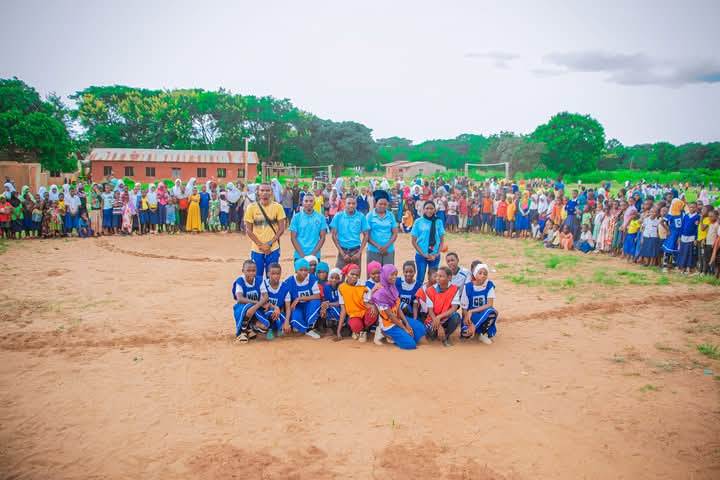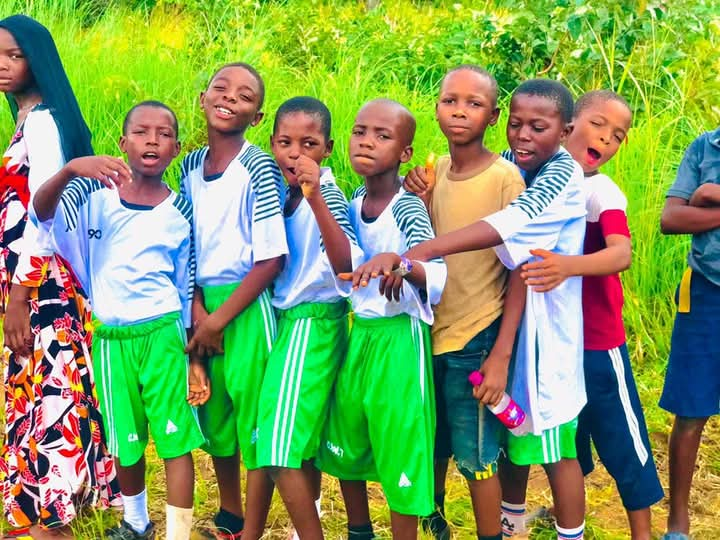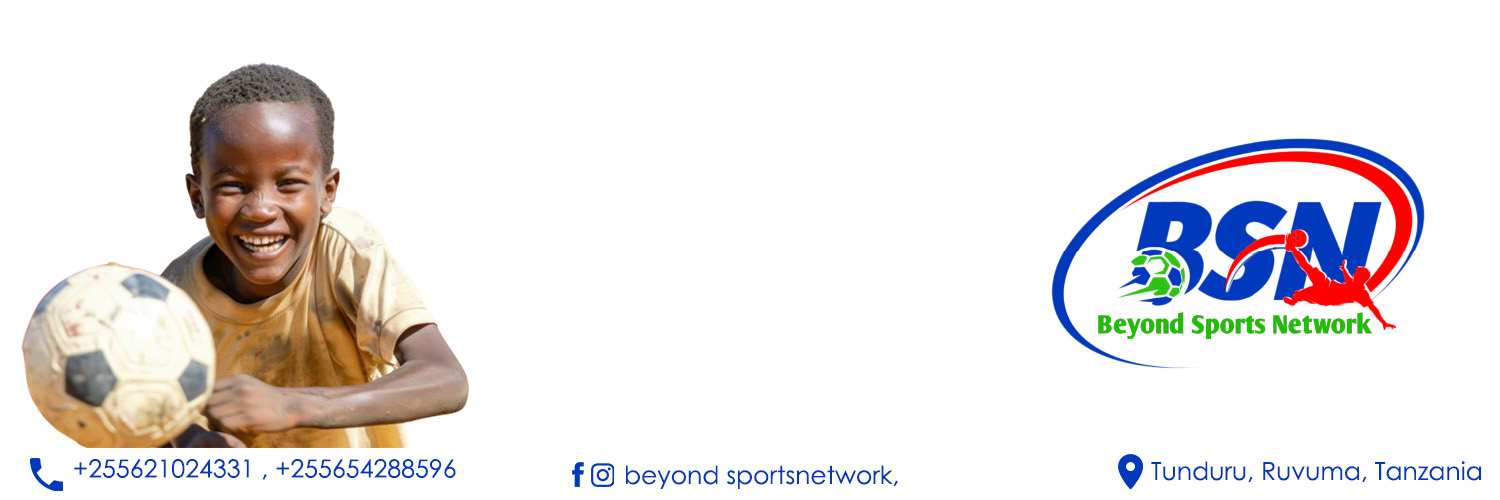Sports have the power to go beyond the playing field it brings people together, teach life skills, and inspires hope. In many rural areas of Tanzania Mainland, young people face challenges such as limited access to education, few opportunities for recreation, and lack of guidance for their future.
Our mission is to use sports as a tool to ENGAGE, EDUCATE, and INSPIRE young people. Through football, floorball, netball, athletics, and other activities, we create safe spaces where youth can learn teamwork, discipline, and leadership while also gaining valuable lessons about health, education, and personal growth.
By combining the excitement of sports with mentorship and life skills training, we are building a generation of confident, motivated, and empowered young people — ready to dream big and contribute positively to their communities.
Beyond Sports Network
is a Community Based Organization with registration number TDC/CD/CBO/F/4092 Which Soon will be registered as a Non governmental organization (NGO) aimed at using sports as a tool to Educate and inspire young people living in rural areas of Tanzania Mainland and ENGAGE, EDUCATE and INSPIRE young people through a sports
⚽ Using Sports as a Tool
Sports are more than just play—it builds discipline, teamwork, confidence, and resilience. By embedding educational themes and life lessons into sports activities, young people can grow holistically.
1. Engage
- Attraction through fun: Sports naturally attracts young people, especially in rural areas where options are limited.
- Safe spaces: Sports grounds become safe environments for children and youth to gather, interact, and learn away from negative influences.
- Inclusivity: Both boys and girls can be encouraged to participate, promoting gender equality.
2. Educate
- Life skills education: Use training sessions to teach teamwork, leadership, discipline, time management, and problem-solving.
- Health & wellness: Integrate lessons on nutrition, hygiene, reproductive health, and HIV/AIDS awareness during sports events.
- Academic motivation: Link sports with school attendance (e.g., only those attending school regularly can participate in certain tournaments).
- Career awareness: Invite role models (local athletes, coaches, teachers) to inspire youth on education and career paths.
3. Inspire
- Role models & success stories: Showcasing successful athletes or educated youth from rural backgrounds motivates others.
- Confidence & self-belief: Sports achievements (even small wins) boost self-esteem and show youth that they can succeed in life with discipline and hard work.
- Community pride: Local tournaments bring entire villages together, creating a sense of unity and hope.
🏆 Practical Examples
- School Sports Clubs: Each rural school can run football, netball, or athletics clubs with built-in mentorship and study groups.
- Life Skills Through Sport Camps: Organize holiday sports camps with training plus sessions on leadership, entrepreneurship, and health.
- Community Leagues & Tournaments: Link competitions with educational campaigns (e.g., “Kick Out Early Marriage Cup” or “Stay in School League”).
- Sports for Girls Empowerment: Use netball,volleyball, soccer and floorball programs to boost confidence among rural girls and raise awareness on educational rights.
- Mobile Coaches/Mentors: Coaches traveling to remote villages not only train but also mentor youth.

🌟 Expected Outcomes
- Increased school retention and motivation among rural youth.
- Development of leadership, discipline, and teamwork values.
- Greater awareness of health, equality, and life opportunities.
- Talent identification for future sports and education pathways.
- A generation of rural youth that is engaged, educated, and inspired to contribute positively to their communities.
Vision
To have community in which young people recognize, respect and appreciate proper traditional social values and have access to sports
- Recognize: Young people become aware of Tanzania’s cultural and social values — such as respect for elders, unity, honesty, and responsibility.
- Respect: They don’t just know these values, but they live by them in their everyday lives — in school, at home, and in the community.
- Appreciate: Youth see the importance of these values in shaping their identity, protecting their heritage, and guiding their future choices.
- Access to sports: Every young person, even in rural areas, should have the chance to play, learn, and grow through sports. Sports becomes a bridge between traditional values and modern life skills.
👉 In short, the vision imagines a society where young people are grounded in strong cultural values while also being empowered through sports opportunities that build character and community.

Mission
To provide education on moral, social values, life skills to young people through sports
- Education on morals: Teaching right from wrong, respect, honesty, fairness, and responsibility — not only in sports, but in daily life.
- Social values: Helping young people understand and practice values like teamwork, unity, gender equality, and respect for diversity.
- Life skills: Using sports to teach practical lessons — leadership, discipline, time management, problem-solving, health awareness, and resilience.
- Through sports: Instead of a classroom-only approach, sports is used as a creative teaching tool — making learning fun, engaging, and practical.
👉 In short, the mission is the action plan: to combine sports with education so that young people gain the knowledge, values, and skills they need to live meaningful, responsible, and successful lives.

Safety
Physical Safety: Ensuring that young people have safe spaces to play, free from hazards, violence, or exploitation. Sports programs should provide protective environments where youth can express themselves without fear.
Emotional Safety: Creating a culture of encouragement and support, where mistakes are treated as learning opportunities, not failures.
Community Safety: Using sports to promote peace, conflict resolution, and alternatives to risky behaviors like substance abuse, early marriages, or crime.
👉 Safety means that every young person feels protected, valued, and supported in both the playing field and their community.

Responsibility
Personal Responsibility: Teaching youth to take care of their health, education, and future. For example, showing up on time for training or school, and giving their best effort.
Team Responsibility: Sports naturally shows the importance of teamwork. Each player learns that their role affects the success of the group, building accountability and reliability.
Community Responsibility: Encouraging youth to give back — through volunteering, helping younger players, or promoting positive behavior among peers.
👉 Responsibility shapes young people into dependable leaders who can be trusted in their families, schools, and communities.

Respect
Respect for Self: Building confidence and self-worth, helping youth believe they deserve a bright future.
Respect for Others: Sports teaches fairness, acceptance, gender equality, and valuing differences in skills, backgrounds, or beliefs.
Respect for Culture and Tradition: Encouraging appreciation of Tanzania’s positive traditional values — unity, hospitality, discipline, and respect for elders — while connecting them to modern life.
👉 Respect is the foundation for harmony, teamwork, and social growth in both sports and daily life.
